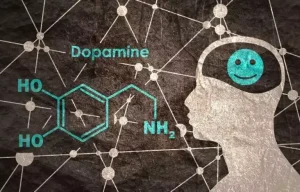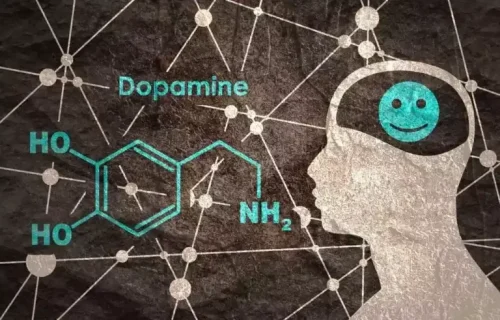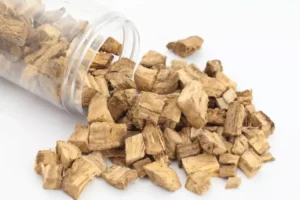THC Vape Pens and Drug Dogs: What You Need to Know DISTRIBUTION CENTER ZA
.jpg)
However, the strong scent of certain substances like coffee, spices, or perfumes, might pique a drug dog’s interest even more. At Zaleaf, we offer a range of 100% legal cannabis products that cater to different moods and preferences. Our products undergo rigorous third-party testing to ensure quality and compliance with federal regulations. This means you can enjoy our THC vape pens with confidence, knowing they are crafted to meet legal standards. This is because you will have to go through TSA security again, and they may have a drug dog that can identify marijuana.
Understanding the Sniffer: How Well Can Drug Dogs Smell Nicotine?
- Just as heat and moisture can make the smell of a garbage can unbearable in the summer, they can also degrade or dilute the odor molecules of nicotine.
- If you are concerned about drug dog detection, consider leaving your vape at home or in a secure location.
- Remember, it’s always best to comply with the law and avoid situations where you might need to hide your vape.
- Additionally, environmental conditions, such as humidity and airflow, can impact scent dispersion and the dog’s ability to detect nicotine effectively.
- But police dogs can sometimes go through 2-3 years of training to sharpen their sophisticated sense of smell.
- These can range from confiscation of products, fines, warnings, suspension, termination, to more severe outcomes like arrest or prosecution.
Highly trained drug dogs are more likely to detect even minimal traces of nicotine with greater accuracy. Nicotine is a highly addictive substance that can be detected by drug dogs. Whether you are trying to conceal nicotine from drug dogs for personal use or for other reasons, it is important to be aware of the methods available to you. In this article, we will explore various ways to hide nicotine from drug dogs and provide you with tips and tricks to keep your nicotine use discreet. Given their amazing sense of smell, plus the ability to be trained, dogs are used as a key tool within law enforcement. Drug dogs are highly reliable due to their advanced training and an acute sense of smell.
- If you are in a state where it is legal recreationally, you have nothing to worry about.
- Finally, having knowledge of how drug dogs detect nicotine and understanding their behavior can also help in avoiding detection.
- Once the dog gets to the car, they can smell through the fabric, but since they’re not trained to smell that specific substance, they might not find it even if it’s there.
- Our K9 teams are able to locate tobacco and vape products in any form ensuring you have the cleanest environment.
- However, nicotine isn’t illegal, so many canines aren’t taught to sniff that out, which means they’ll smell the vape and move past it because it isn’t what they want.
- In the world of tobacco consumption, folks might have their own reasons to keep their nicotine use under wraps.
- Regardless of the type of nicotine product you use, proper storage is key.
How can you hide nicotine from drug sniffer dogs?
The dog how to hide a vape from a drug dog is searching out the scent of the illegal substance but thinks they’re seeking out their toy. Explore the rise of No medical card needed cannabis laws, understand legal implications, and discover benefits in this insightful guide. Unopened containers provide an extra layer of protection, as the scent is less likely to escape.
Preparing for Travel: Tips for Avoiding Detection by Airport Security Canine Units
Possible legal ramifications may include fines, probation, mandated counseling or rehabilitation, and even imprisonment. It is essential to research and be aware of the specific laws and regulations of the jurisdiction you are in to avoid potential legal trouble. Drug dogs undergo extensive training to develop their exceptional scent detection skills. They are typically trained using a reward-based method, which involves positive reinforcement when they successfully locate a target odor. Our K9 teams are able to locate tobacco and vape products in any form ensuring you have the cleanest environment. With the recent spread of COVID theres even a greater fear of teens sharing vapes and spreading COVID through direct contact.
Walking past a canine, wondering if drug dogs smell vape pens and cartridges. In this article, we will explore some of the methods and tips that can help you avoid detection by drug dogs, as well as the risks and consequences of getting caught with nicotine. Drug dogs can also differentiate between different scents, distinguishing nicotine from other substances. Drug dogs may be able to detect nicotine in electronic cigarettes, depending on the training and sensitivity of the dogs. It is important to take precautions and use effective methods to hide nicotine from drug dogs.
.jpg)
Always consider the legal implications before attempting to hide nicotine. While this may seem plausible, it’s essential to remember that drug dogs are trained to stay focused regardless of distractions. In this section, let’s take a deep dive into the science behind a drug dog’s superior sense of smell, which makes our task of hiding nicotine that much more challenging.
Frequently Asked Questions For How To Hide A Vape From A Drug Dog
Talking of whether k9 dogs can sniff out nicotine, what about when it comes to other dogs, can drug dogs smell nicotine? Drug dogs are trained to identify all kinds of drugs, and nicotine is no exception. The main reason this depends on is that police dogs are trained to scent out a handful of things. Most police dogs are trained to locate illegal substances, like cocaine, meth, or marijuana.
Their ability to detect a wide range of substances helps maintain safety and security. No method guarantees 100% success, but understanding these approaches may help minimize the chances of detection. Many people believe that vacuum-sealed bags are impenetrable to odors. However, plastic permeability plays a big role in scent leakage.
But I think it’s worth looking deeper into the question than just a simple yes or no. Drug dogs have a keen sense of smell that can detect a wide range of substances, including nicotine. However, there are ways to make it more challenging for these talented canines to detect your nicotine products. New technologies, such as electronic sensors or devices, are currently being developed to detect nicotine in various environments. However, it is important to note that these advancements may also lead to more sophisticated training methods for drug dogs. Highly trained and specialized drug dogs receive extensive training to detect specific substances, including nicotine.








